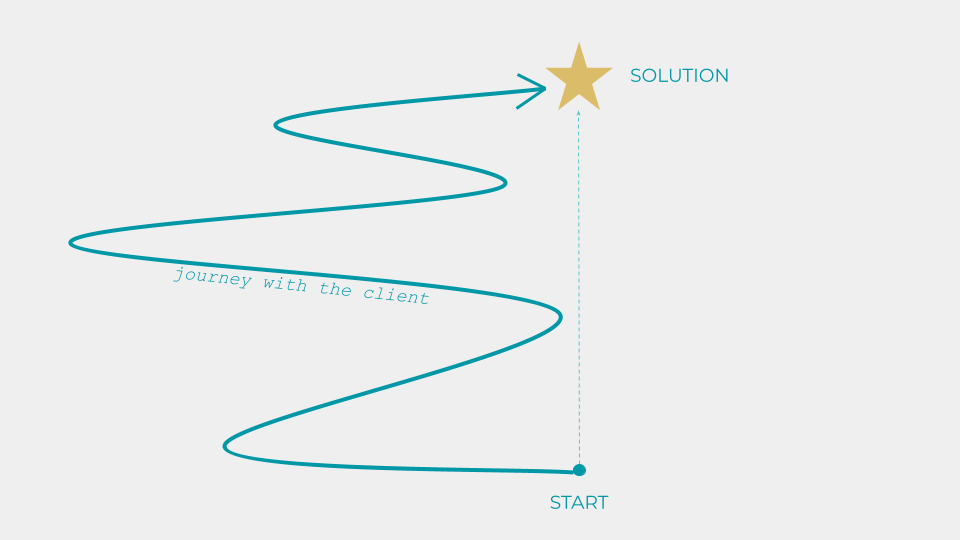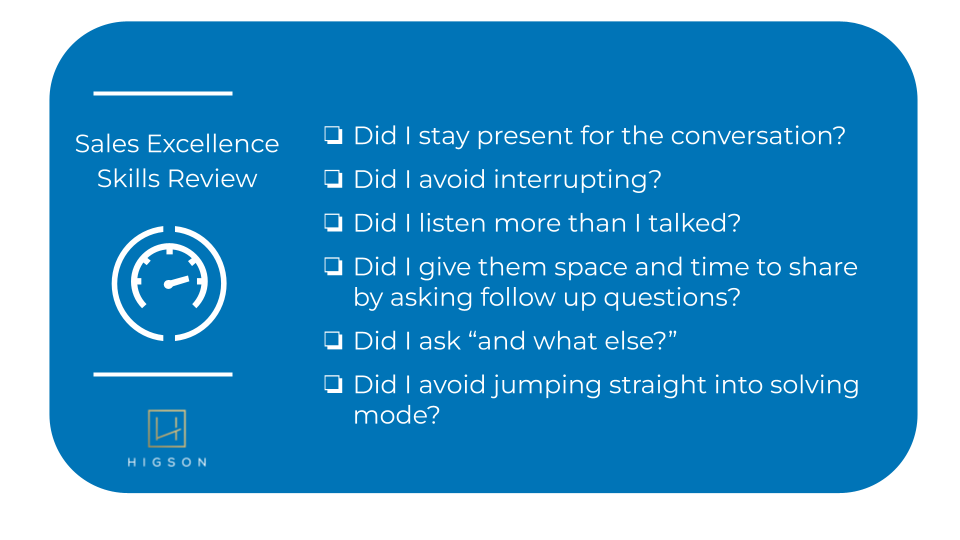15th March, 2024 •

Written by Charlotte Duckworth
25th January, 2022 • 3 min

Making connections with our clients is essential for success in sales. Showing empathy helps us build lasting connections. Are you using empathy with your clients?
To get you thinking, here is a scenario:
If a client tells you that they are worried about a particular challenge. How would you respond?
Would you:
A. Try to help them by sharing an example of when you have been in a similar situation and what you did to improve it
Or
B. Listen and try to understand what they are going through, without trying to offer feedback and advice straight away
…Hold this thought!
What is empathy?
Empathy is the ability to understand or feel what another person is experiencing from their perspective; it is the ability to put ourselves in their position and understand what they are going through.
Here is a brilliant, and entertaining, video by Brené Brown that shows how to avoid jumping straight into problem-solving mode and focus instead on building trust first.
To refer back to the scenario:
Option A – where we share a similar experience, is the sympathetic response. Here the attention is on what you are experiencing in response to what the other person is feeling.
Meanwhile,
Option B – is the empathetic response. In this response we are listening to understand. Our attention is completely on what the other person is feeling and this is the best response when a client begins to share a concern… so those of you who picked option B can feel a little smug now!
Why is showing empathy important in sales?
In sales, being empathetic is essential for building connections. By building connections with our clients we create strong and lasting relationships.
Often, in sales, meetings can look like this image:

We get in there, and within five minutes we can see the star, the solution. We can be tempted to go straight to the star and present our solution – we want to help.
What are the risks of doing this?
The risk here is that the client doesn’t feel heard. At worst, they feel their concern is being disregarded because we are sharing about our concern, rather than focusing on theirs. It ties into this quote from Steven Covey:
‘Most people listen with the intent to reply, rather than the intent to understand.’
Sometimes when people are talking, we can be thinking about what we can share from our experience to help them. What can be really powerful is if we listen to understand their situation first, make sure we have fully understood, before we then try and help.
What the client often needs is time to talk, they aren’t ready to hear the solution… yet.
It’s powerful to take the client on a journey.

It might be a bit of a wiggly route! Asking questions, listening and showing empathy. By doing this we build trust and make a connection. So by the time we get to the star and share the solution, the client is bought in and may even feel as though it was their idea.
How can we use empathy in sales?
We can break down empathy into specific behaviours. Here is a checklist you can use to reflect on your recent conversations:

In sales, it can be tempting to offer up the solution immediately. We are trying to help. By practicing empathy, focusing on the client and on the client’s experience, we are equipping ourselves to build lasting connections.
If you would like to learn more about the importance of showing empathy and communication skills in sales, then we would love to hear from you.